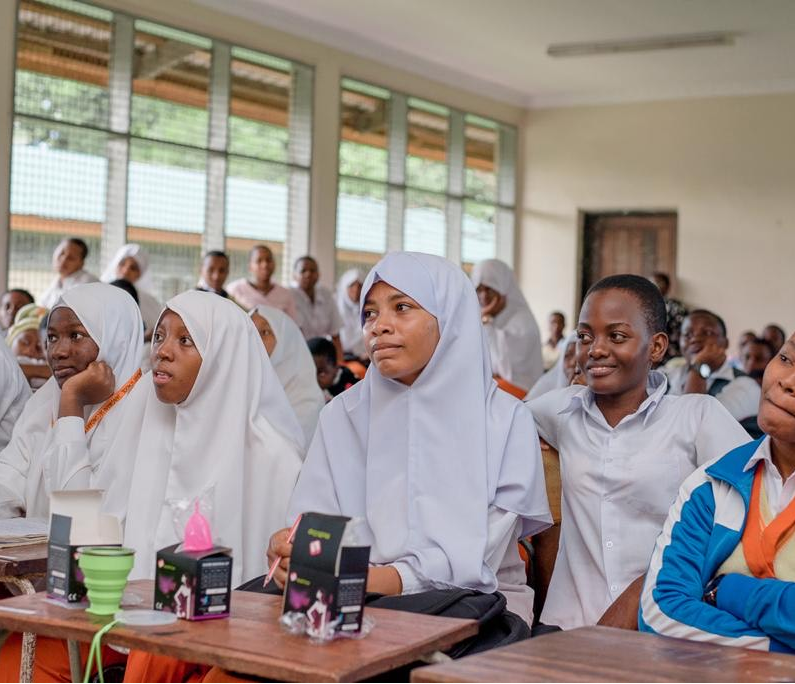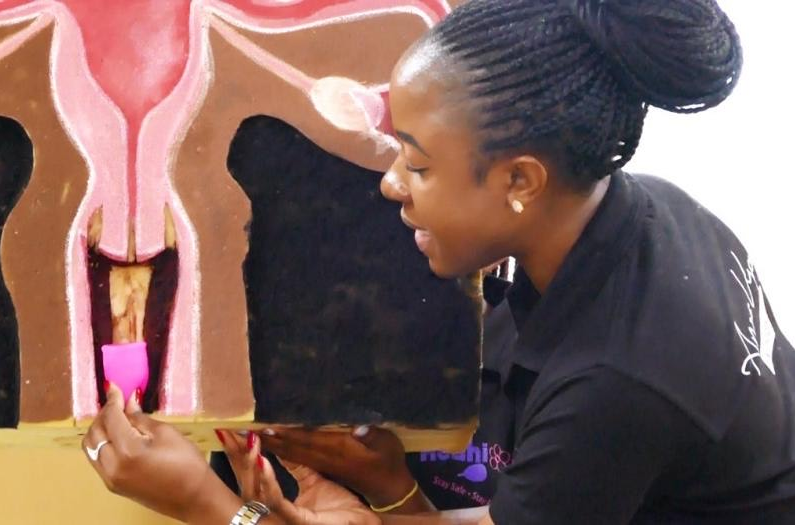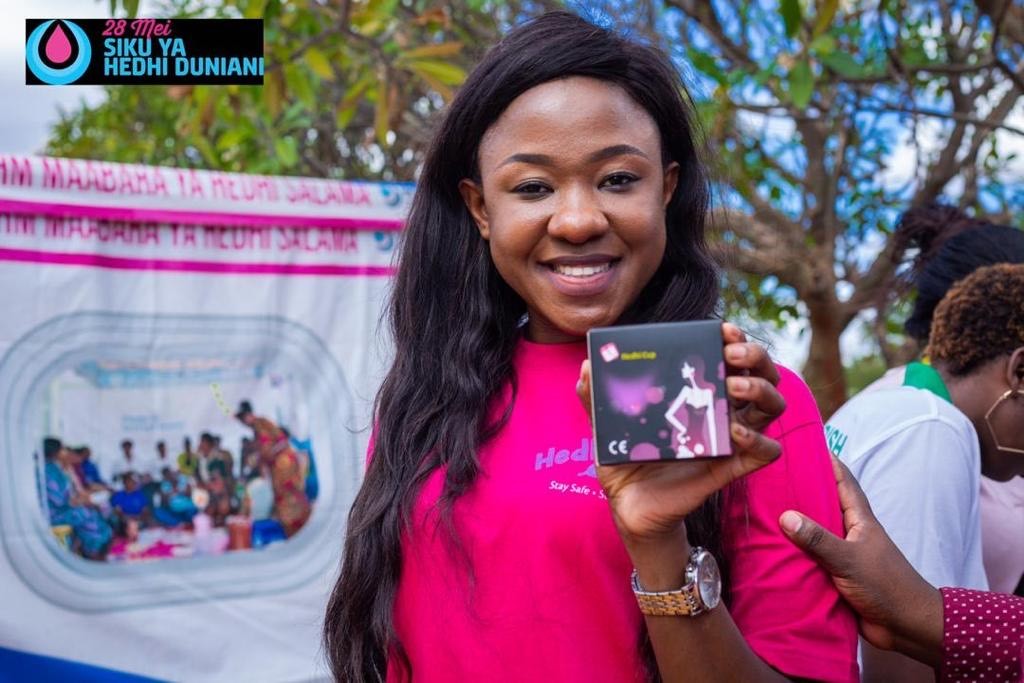with our monthly newsletter.
Flora Njelekela, Founder of Hedhi Cup
Meet the first woman to sell menstrual cups in Tanzania.
Flora Njelekela is an entrepreneur with a passion to improve and increase access to the hygiene and sanitation solutions available to women and girls living in Tanzania. Her journey to address the challenges surrounding menstrual health began with a visit to her childhood home in Songea, a town nestled in the Southern Highlands of Tanzania.
While walking through the garden one morning, she noticed scraps of cloth hung on the washing line. “Your cousin uses these to soak up her period blood,” her grandmother explained. This stunned Flora. Though she had heard stories of women facing period poverty, she did not realise someone so close to her had difficulty accessing safe sanitary products.
In reality, this is a common experience of many women and girls throughout the world. In Tanzania, it is estimated that 85% of the female population don’t have access to modern menstrual health products. Instead, a variety of homemade alternatives are contrived, including cloth rags, dried grass, corn cobs and even cow dung. It goes without saying that these materials are difficult to sanitise before use, leaving women and girls vulnerable to health risks such as infections.

Period poverty is an issue that crucially needs to be addressed. Women and girls who are unable to afford or access menstrual health products for a safe and dignified menstruation are sometimes forced to skip school or work, negatively impacting them and society.
In Tanzania and many other countries, these challenges are exacerbated by a stigma around menstruation that is deeply embedded within cultures and communities. A sense of humiliation prevails among women and men when the topic is brought up, leading to poor knowledge of menstrual health management and denial around the normality of menstrual cycles. To avoid being ostracised, the prevailing custom for Tanzanian women is to dispose of sanitary pads or tampons by burning them after use instead of throwing them in bins where the products might be seen by waste collectors or others.
Encumbered by thoughts of her cousin’s wellbeing, Flora returned to work and began searching for a safer, more sustainable product. She eventually discovered the menstrual cup – a bell-shaped cup made of silicone that can be used multiple times during menstruation cycles. After testing the cup for its durability and feel by using it herself, she began to seek out feedback from other Tanzanian women.

“I found that women were initially apprehensive of the menstrual cup due to its size,” Flora recalls. “But once they tried it, they liked the freedom the cup allows. They like the absence of chemicals that sometimes cause heat and bad odour and most importantly, the hassle-free disposal of period blood.”
Encouraged by this positive feedback, Flora, with the support of Institutions for Inclusive Development (I4ID), launched the menstrual cup on the Tanzanian market in 2019. She named her product “Hedhi”, meaning menstruation in Kiswahili, with an objective to kick-start conversations on the taboo topic.
Armed with I4ID’s technical support on marketing, as well as operations, distribution and sales, Flora’s initiative gained momentum. Through discussions on local radio shows and demonstrations at schools, universities, and social events, Flora began raising awareness and addressing the misconceptions around menstrual cups. She also created a free mobile app that provides menstrual health information in Kiswahili and includes features such as tracking period cycles.
“We have made progress in alleviating the stigma,” Flora reflects. “When I am at events, I notice that men are more involved and engage with women about menstruation and the issues present in Tanzania. We are moving in the right direction."

When Flora began selling Hedhi Cup, her reach was limited only to Dar es Salaam and less than 15 retailers agreed to stock her products. Now, her product is available in over 100 outlets across Tanzania. Flora’s company sales have grown five times since she started.
A challenge remains in the price of the Hedhi Cup. Though Flora has been able to reduce the recommended retail price from TZS30,000 (approx. £10) to TZS20,000 (approx. £7.06), the cost to the average Tanzanian woman is still high. The next steps in Flora’s journey include a way to reduce the price of her product further, thereby increasing access for more women.
My dream is to manufacture Hedhi Cup in Tanzania,” she says. “I just need to keep going and one day it will happen!”
I4ID is an adaptive governance program that works through multiple, iterative innovations to deliver transformative systems change - combining policy reform, product and business innovation, social norms change and coalition building to deliver scalable and sustainable inclusive development outcomes.
I4ID is funded by UK aid from the British people and by Irish Aid.
with our monthly newsletter.

